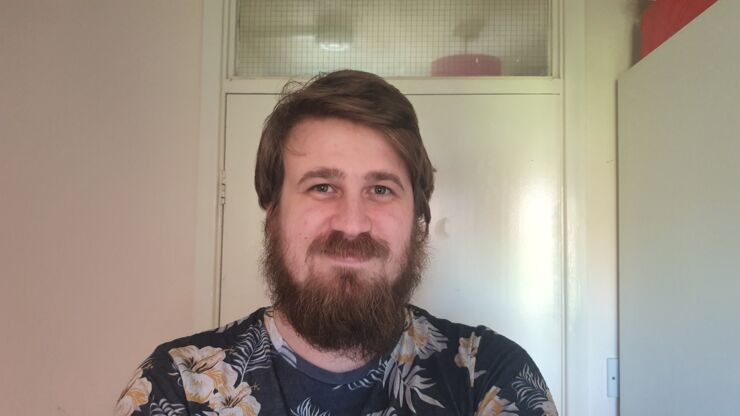 What do you work with?
What do you work with?
My doctoral position is connected to the largest migration project in the world so far, and focusses on the relationship between migration and inequality. My own research and research interests are mainly concerned with ethics and social epistemology. In particular, I am interested in how different research methods, sources of funding and power relationships influence and shape the knowledge produced.
What do you like best about your work?
The absolutely best thing about my job is that I get to devote myself full-time for more than three years to research into something I find truly interesting and care about. Another great thing is the freedom. Apart from a couple of meetings each week, I am completely free in how I use my time, which is a large challenge that requires a lot of self-discipline. It is, however, something that I really value.
What challenges do you face at work?
The most difficult thing in practice is, without doubt, having so much control over what, how and when I work. It needs considerable self-discipline and creates a lot of stress, since I often feel that there is more to do, even after putting in a full week’s work. So while this is one of the aspects of my job that I really appreciate, it is at the same time one of the most stressful.
What happened after graduating? How was the transition to professional life?
I taught history and English after my first degree, but I had the feeling that I wasn’t quite finished with university. I decided to take the master’s programme in applied ethics, and intended to continue to doctoral studies afterwards. It worked out as planned, and when I started to look for a doctoral position somewhere in Europe in the spring of 2019, I found that I was unexpectedly successful. This can be interpreted as proof that the programmes compete on equal footing on the international stage. In the end, after a bit of pressure from my girlfriend who happens to be English, I moved to England and Coventry.
Is what you learned during your education useful in your current work?
Indeed it is. My education as a teacher has been extremely useful. Teaching skills and the experience of standing in front of a group of people have helped me a lot in my current role. The history education is useful every week, particularly when it comes to knowledge about scientific philosophy, research methods, and how to use source material. The education I received in ethics and migration science is directly relevant to my current research, and I use what I learned every day.
What is your best memory from your period as a student?
Without question – Wednesday evenings in Ryd. Three of my best friends shared an apartment and the group of us made a habit of getting together every Wednesday evening, just sit and chat, down some beers, and eat something together. I really miss that now that all of us have left Linköping.
What advice would you give to others who are considering taking the programme?
The most important thing is to get the most out of life as a student. Make it what you want it to be. Another thing to remember is that the programmes (both the teacher education and the master’s programme in applied ethics) are much broader than they initially appear. Just because you’re taking the teaching programme doesn’t mean that you can only work as a teacher. Programmes such as the two that I took open so many doors, and they’ve really given me the possibility to spend my time on something I find meaningful.